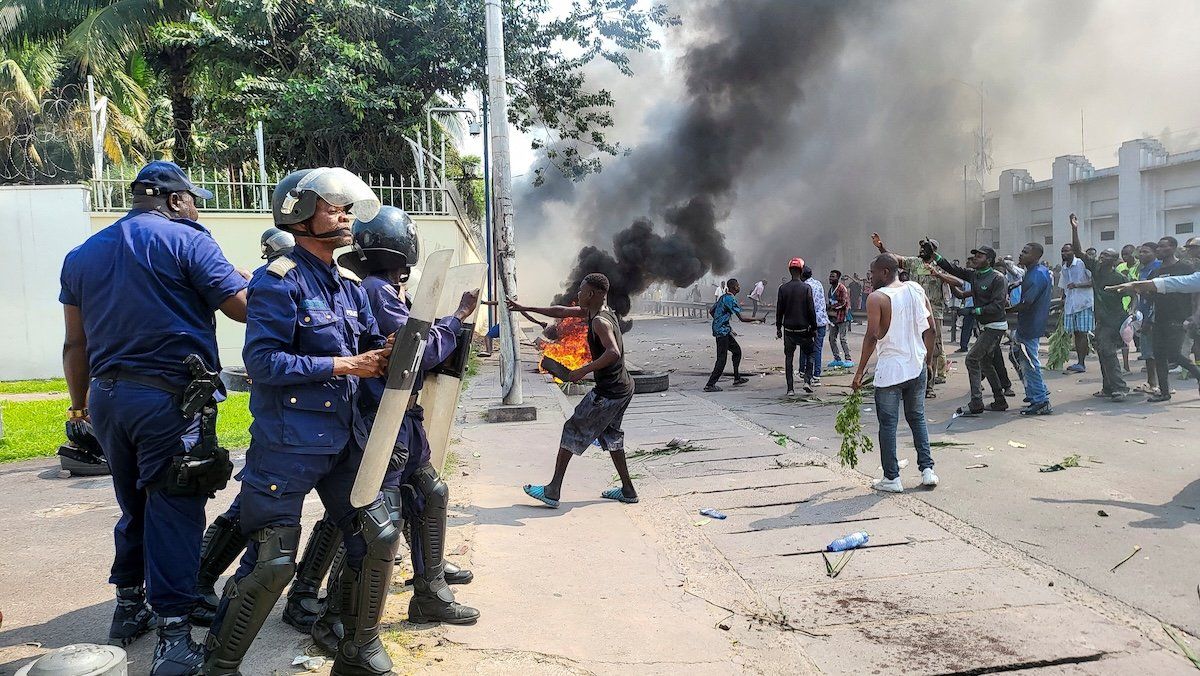M23 rebels have seized the airport in Goma, in the Democratic Republic of Congo, and overrun the city in the worst sectarian violence since 2012. Streets are strewn with bodies, and there are reports of heavy gunfire, rape, and looting. Hospitals are under attack, and an Ebola research lab lost power, putting samples at risk, according to the International Committee of the Red Cross. Should the virus be released among the local population, the agency said the impact would be “unimaginable.”
Rwandan President Paul Kagame denies funding M23 or that Rwandan troops have entered Congo. But in the capital of Kinshasa, protests against alleged Rwandan interference turned violent on Tuesday, as crowds attacked the embassies of Rwanda, Uganda, Belgium, the Netherlands, and the US, accusing them of “complicity” in M23’s assault. Demonstrators also looted the Kenyan Embassy as well as local supermarkets, and set buildings on fire in a scene described as “total chaos.”
What’s the role of the West? The EU signed a strategic minerals deal with Rwanda in 2024 and the country has taken in asylum-seekers from Europe, making sanctions a complicated prospect and fueling accusations that the West is enabling the conflict to continue. France and the European Union condemned the attacks, as did US Secretary of State Marco Rubio in a call with DRC President Felix Tshisekedi on Monday, but we’ll be watching what further action Western governments are prepared to take if the violence escalates.